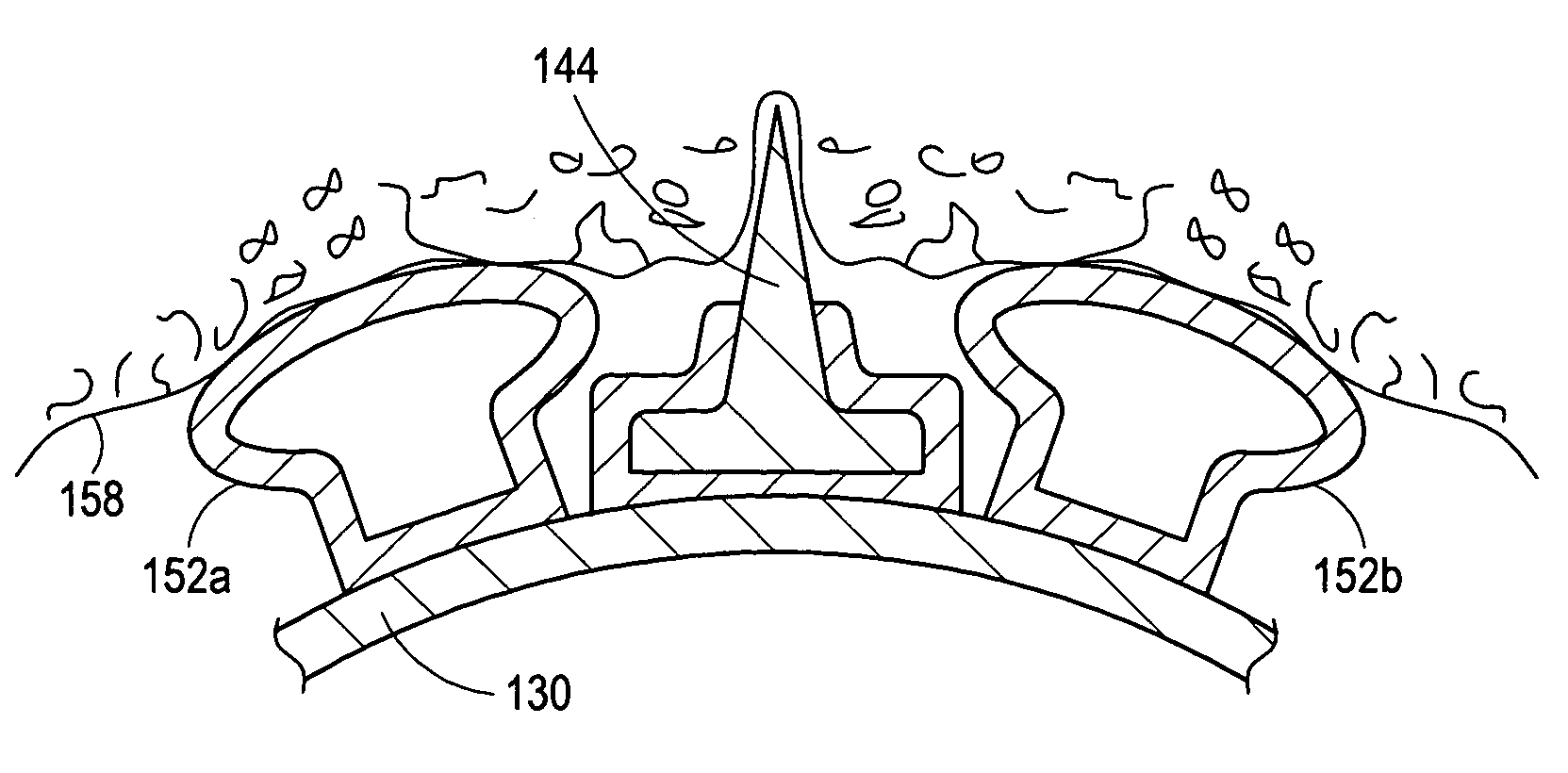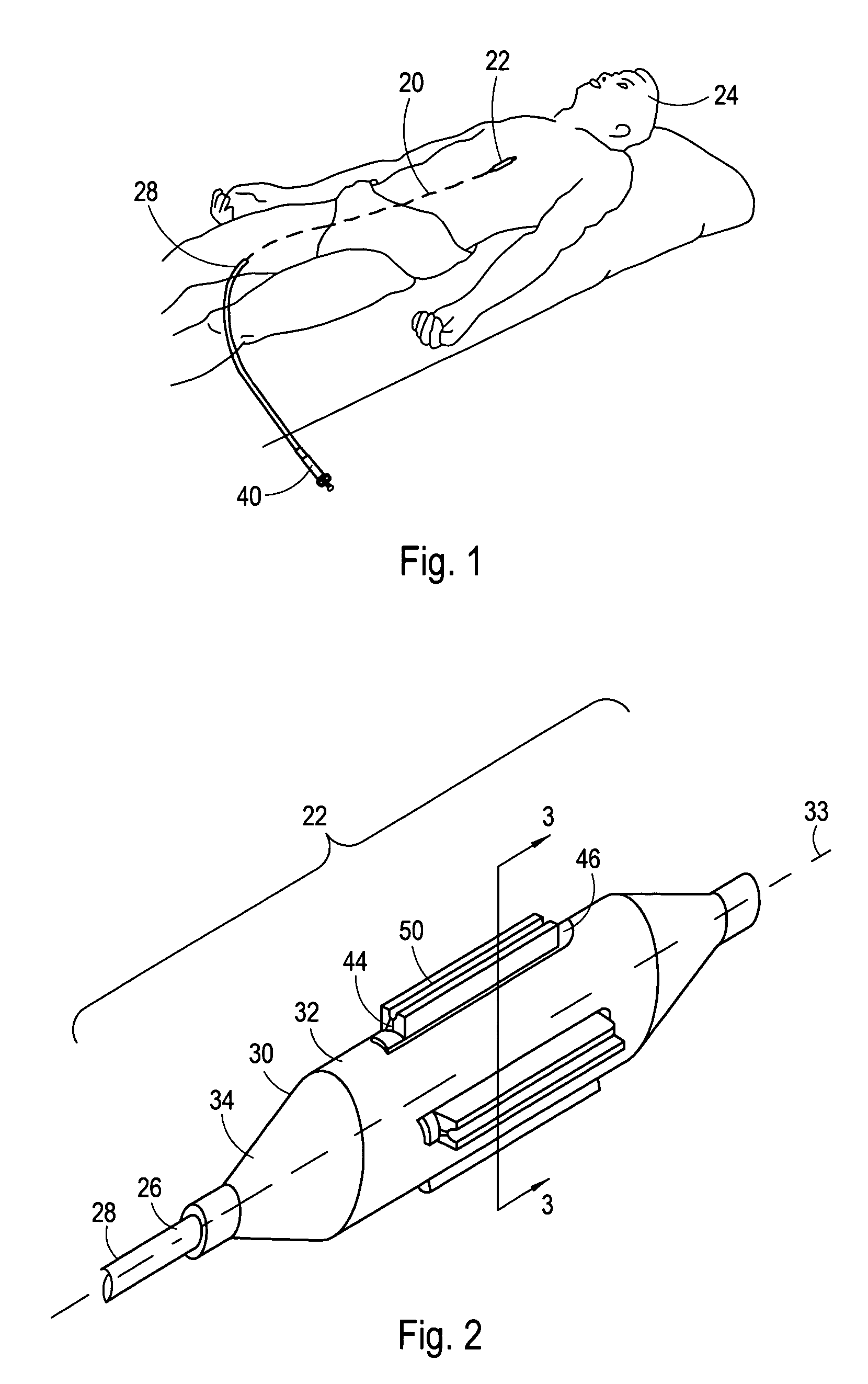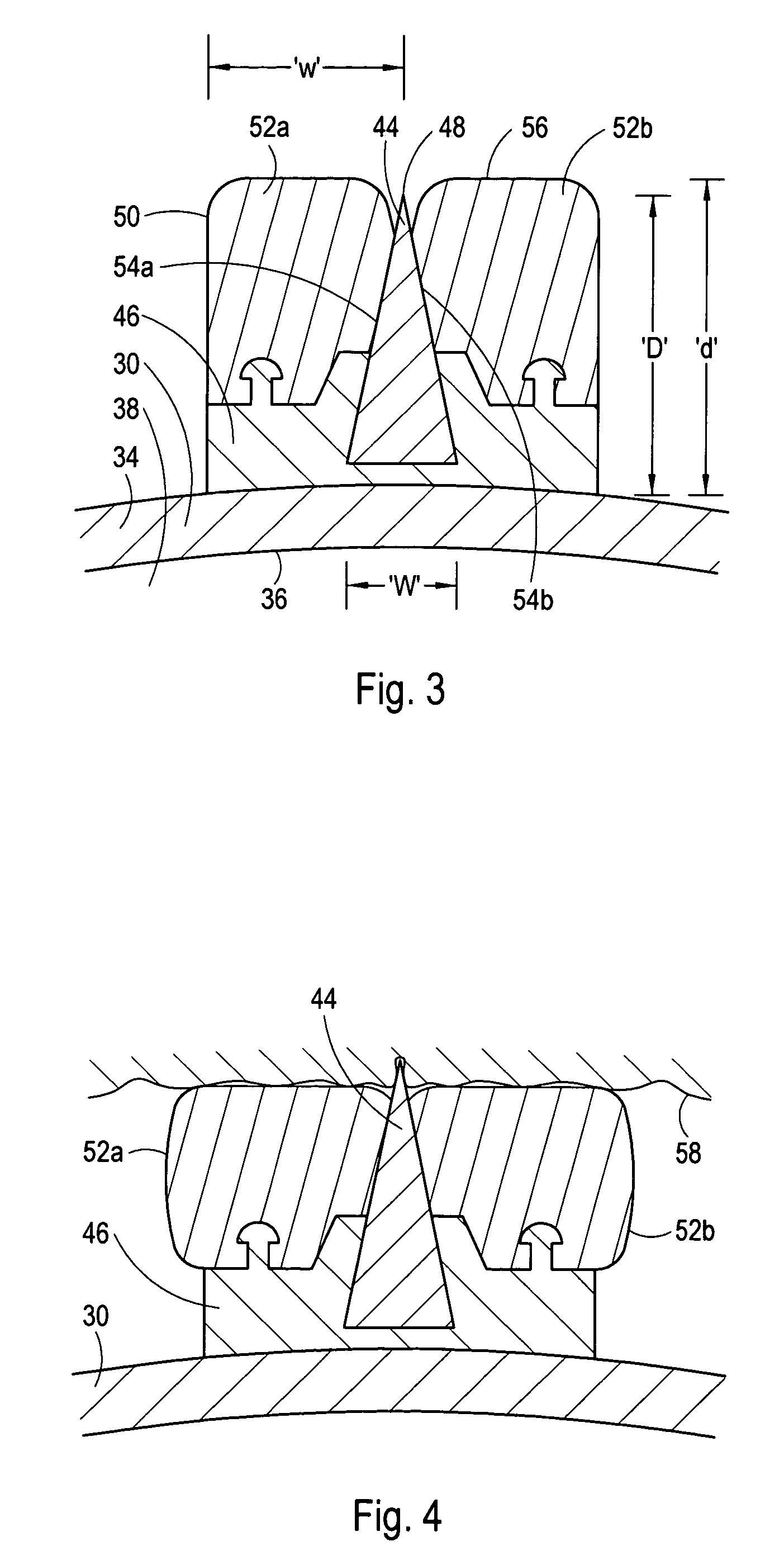Cutting balloon having sheathed incising elements
a cutting balloon and incising element technology, applied in the field of medical devices, can solve the problems of fragile inflation balloon, affecting the safety of patients, and affecting the safety of patients, and not necessarily protecting the relatively fragile balloon
- Summary
- Abstract
- Description
- Claims
- Application Information
AI Technical Summary
Benefits of technology
Problems solved by technology
Method used
Image
Examples
Embodiment Construction
[0021]Referring initially to FIG. 1, a catheter 20 having a cutting balloon 22 is shown for performing a medical procedure at an internal treatment site of a patient 24. More specifically, the catheter 20 is shown positioned to treat a lesion in an upper body artery. Although the catheter 20 is capable of performing a medical procedure in an upper body artery such as a coronary artery, those skilled in the pertinent art will quickly recognize that the use of the catheter 20 as herein described is not limited to use in a specific artery, but, instead can be used in vascular conduits and other ductal systems throughout the human body.
[0022]Referring now to FIG. 2, the distal portion of the catheter 20 is shown to include a cutting balloon 22 that is attached to the distal end 26 of an inflation tube 28. FIG. 2 further shows that the cutting balloon 22 can include an inflatable balloon 30 that typically includes a cylindrical shaped working section 32 that defines an axis 33. Typically...
PUM
 Login to View More
Login to View More Abstract
Description
Claims
Application Information
 Login to View More
Login to View More - R&D
- Intellectual Property
- Life Sciences
- Materials
- Tech Scout
- Unparalleled Data Quality
- Higher Quality Content
- 60% Fewer Hallucinations
Browse by: Latest US Patents, China's latest patents, Technical Efficacy Thesaurus, Application Domain, Technology Topic, Popular Technical Reports.
© 2025 PatSnap. All rights reserved.Legal|Privacy policy|Modern Slavery Act Transparency Statement|Sitemap|About US| Contact US: help@patsnap.com



